Today we live in a society, which can not imagine life without expressing views on social media. Probably it does have certain advantages. Nevertheless, many participants of active discussions have already forgotten or do not even know about the developments, which unfolded in Armenia 5, 10 or 15 years ago.
To fill the gap Mediamax presents 5/10/15 project, which introduce developments in Armenia 5, 10 and 15 years ago.
• 15 YEARS AGO: JANUARY 18-24, 2006
USA wants reassurances
Armenian President Robert Kocharyan and U.S. Ambassador John Evans discussed “possible steps that might be taken to reassure the United States that Armenia remains committed to strengthening democratic institutions and to the holding of free and fair elections in 2007 and 2008.”
This was indicated in the statement on the U.S. Embassy’s website about the meeting between Kocharyan and Evans, held in Yerevan on January 17.
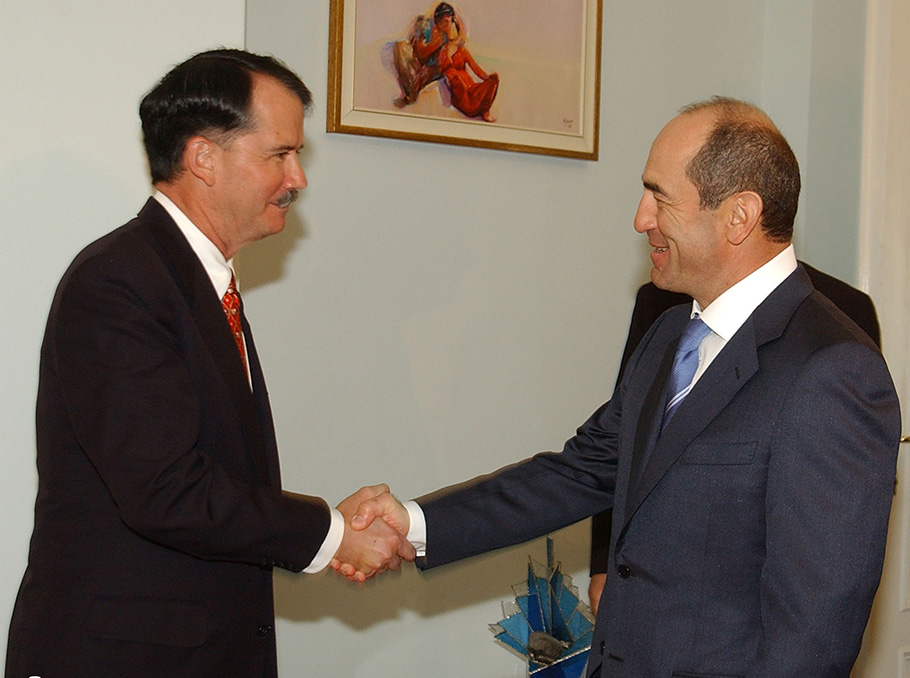 John Evans and Robert Kocharyan
John Evans and Robert Kocharyan Photo: Photolure
The statement read that “Ambassador Evans met with President Kocharyan to discuss concerns that have arisen in Washington and elsewhere in connection with the November 27, 2005 referendum on the constitutional amendments.”
The U.S. Embassy recalled that the Millennium Challenge USD 235.65 million agreement had yet to be signed, and Armenia had to meet certain criteria to be eligible for assistance under the Millennium Challenge Account.
“The sides must come to terms in advance”
Vice president of the International Crisis Group (ICG) Alain Deletroz stated that it was necessary to conduct a referendum to determine the status of Nagorno-Karabakh and “the sides must come to terms in advance that they would agree with the results of the referendum which will lead to the proclamation of the independence of Nagorno-Karabakh.”
Deletroz said this in the interview published in Moscow-based “Vremya Novostey” newspaper on January 18.
“In our report we not only recommend the parties in the conflict to continue the talks in the today’s format at the level of foreign ministers of Armenia and Azerbaijan, but also advise the leadership of Azerbaijan to agree with the fact that representatives of Karabakh will join the negotiations at some level. Besides, we believe that Baku should take some steps to allow interpersonal contacts between Karabakh and Azerbaijan, as today the citizen of Azerbaijan is forbidden to have any contacts with Nagorno-Karabakh, which is very bad,” ICG vice president said.
“Armenia and Karabakh should withdraw their troops from the occupied territories, but the Azerbaijani army must not enter this area. The international troops should come to occupied territories. Saying occupied territories I mean seven regions, but not Nagorno-Karabakh itself. We understand that the Omar Pass in Kelbajar and, of course, the Lachin corridor - which the Karabakhians call “our road of life” - are strategic regions for Karabakh and its interests must be taken into consideration. If Azerbaijani army has no right to enter these regions, then the refugees and the displaced persons will have the right to return,” Alain Deletroz said.
“Do not dramatize”
On January 19, President of the Nagorno-Karabakh Republic (NKR) Arkady Ghukasyan urged not to “dramatize” the possible deployment of the international peacekeeping contingent in the conflict zone.
He pointed out that discussing this issue was quite normal in conditions when there is distrust between the parties in the conflict. At the same time, NKR President stressed, speaking about the peacekeeping operation was premature until the sides come to agreement on basic principles of the settlement.
“It is expected that after the sides come to agreement one of the points will be the deployment of the peacekeepers,” Arkady Ghukasyan said. At the same time, he said: “I see no serious reasons for optimism yet. The settlement process depends not only on us. We are ready to walk our part of the path if our adversary walks theirs. But we see no strides from the Azerbaijani leadership yet,” the President concluded.
The call of the European Parliament
On January 19, European Parliament called on the Azerbaijani authorities “to put an end to the demolition of medieval Armenian cemeteries and carved stone crosses in southern Nakhichevan.”

Photo: Aram Vruyr
This was stated in Article 67 of the Resolution on the European Neighborhood Policy, adopted by the European Parliament.
The resolution said that the demolition of medieval Armenian monuments was in breach of the terms of Azerbaijan’s 1993 ratification of the UNESCO World Heritage Convention.
“The situation causes certain regret”
On January 24, Spokesman for Armenian President Viktor Soghomonyan said that the “situation over supplies of Russian gas to Armenia causes certain regret.”
He said that “taking into consideration the strategic character of our relations with Russia we thought that the issue of Russian gas prices could be solved more easily and wouldn’t require such long negotiations.”
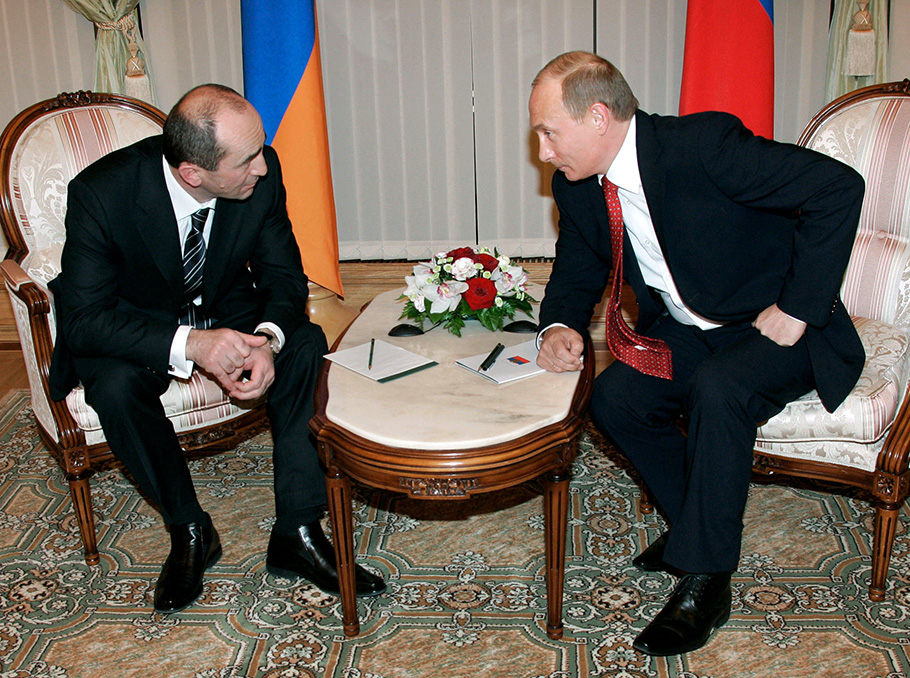 Robert Kocharyan and Vladimir Putin on January 22, 2006
Robert Kocharyan and Vladimir Putin on January 22, 2006 Photo: Reuters
However, the President’s spokesman Said, “The energy cooperation with Russia is one of the components of our strategic partnership and cannot be a basis for revising the whole spectrum of our relations.”
“In this situation we are extremely concerned with the fact that a public opinion is being formed in Armenia which can hardly be considered to be favorable for Russia. We are concerned fact that in a long-term perspective such public moods may play their role,” he added.
• 10 YEARS AGO: JANUARY 18-24, 2011
“Azerbaijan is not ready for peace”
Speaking in the House of Representative of Cyprus on January 17, Armenian President Serzh Sargsyan stated that “Azerbaijan is not ready for peace”.
“The propaganda of hatred towards Armenia and Armenians, which rages in Azerbaijan given the active support of the government, the open falsification of history, launch of armaments race; all these prove that Baku is not ready for peace. It has come to the fact that my Azerbaijani counterpart announces that a larger part of our country was gifted to Armenia by Azerbaijan, and our capital Yerevan is an Azerbaijani city,” Sargsyan said.
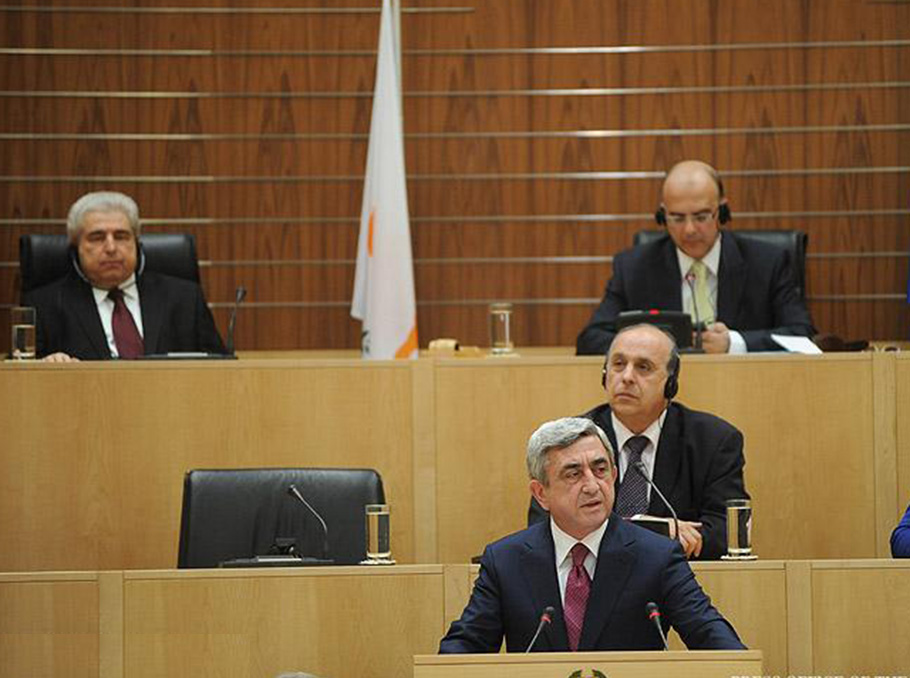 Serzh Sargsyan speaking in the House of Representative of Cyprus
Serzh Sargsyan speaking in the House of Representative of Cyprus Photo: Armenian President's press office
“Azerbaijan has no legal, political or moral rights for claims on Nagorno-Karabakh. Yes, we are full of determination to solve the problem exclusively through peaceful negotiations, however if Azerbaijan decides to take up an adventure, our response will be resolute,” he added.
“Turkey has destroyed the process”
On the same day Sargsyan stated that “Turkey destroyed the process of normalization of relations with Armenia.”
“The process that started with our sincere offer to normalize the relations through small steps has quickly come to an end. Turkey has destroyed it with controversial behavior, contradictory statements, and groundless speculations. Turkey withdraw from its own commitments, not only failing to ratify the signed protocols but also returning to its previous stance,” said Sargsyan.
He stressed that Armenia had much more moral and legal grounds for pre-conditions.
“However, we found the strength to overcome psychological obstacles and move forward. We do have many issues with Turkey, first of all in terms of recognition of the Armenian Genocide. Still, we preferred the civilized way of normalizing relations through dialogue to setting pre-conditions,” added Sargsyan.
“Armenia is an excellent example”
On January 20, UK Ambassador to Armenia Charles Lonsdale said that “Armenia is probably the best example of how constructive relations with NATO may be developed without damaging other partner relationships in the security sphere.”
“Armenia is an excellent example of the fact that the cooperation in the security sphere shouldn’t necessarily bear an exclusive character,” the official added. According to Charles Lonsdale, “the greatest challenge for this region is to overcome the zero-sum game psychology.”
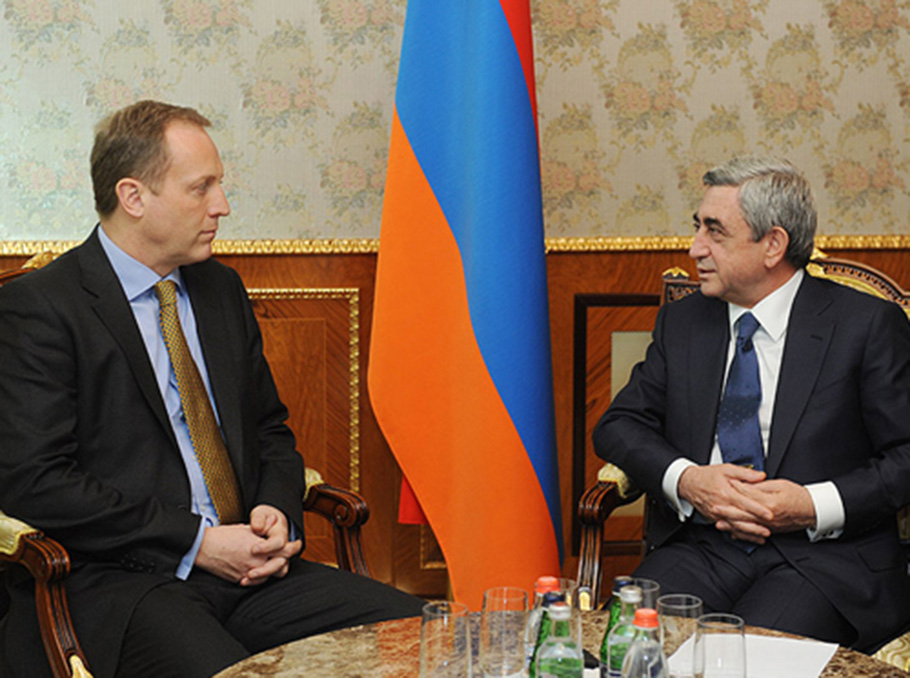 Charles Lonsdale and Serzh Sargsyan
Charles Lonsdale and Serzh SargsyanPhoto: Armenian President's press office
Commenting on the fact that Armenian President Serzh Sargsyan refused to take part in NATO Summit in Lisbon because some wordings of the final declaration were unacceptable for Yerevan, Charles Lonsdale expressed confidence that it did not negatively affect Armenia’s relations with the Alliance.
• 5 YEARS AGO: JANUARY 18-24, 2016
Aliyev’s “psychological exhaustion”
Speaking at the World Economic Forum in Davos on January 22, Azerbaijani President Ilham Aliyev stated that his country was not ready for the further reduction in oil prices.
“It is a bit exhausting from a psychological point of view, not to mention that countries need to balance their budgets,” Aliyev said.
He also called for the coordination and strengthening of trust between OPEC countries and large oil-producing countries that were not members of the cartel.
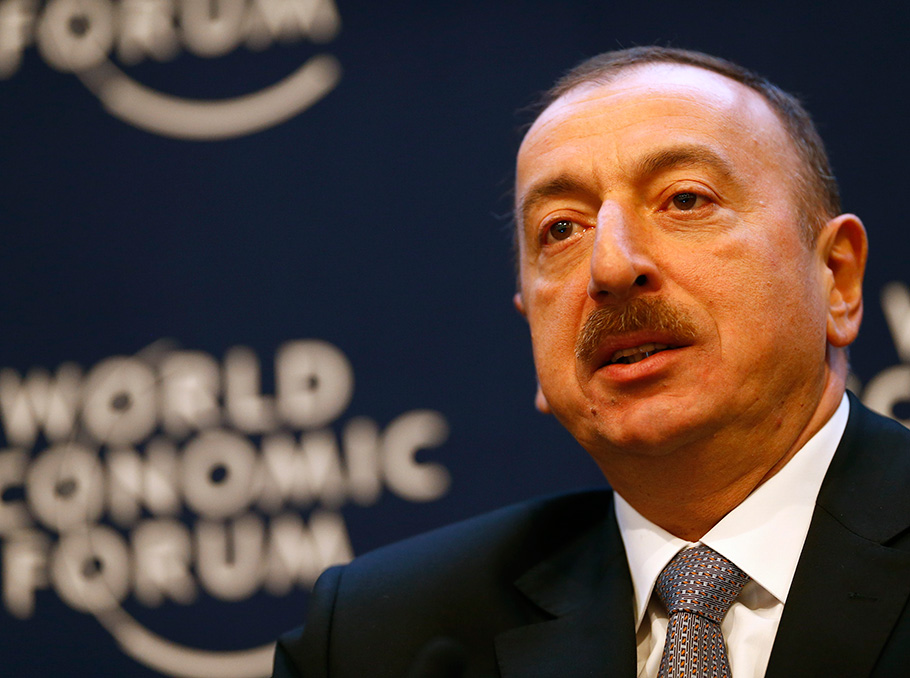 Ilham Aliyev in Davos
Ilham Aliyev in DavosPhoto: Reuters
“If it does not happen, OPEC would not be able to make decisions. And the timing on when the oil price will reach “bottom” will be unclear in case of absence of decisions. Every day we think this is the bottom, and then we see lower prices,” he said.
“We have been preparing for the so-called “post-oil” era in Azerbaijan in some 20 years. It came as a surprise to us, and at the same time it was a stress on our economy,” said Aliyev.
"It's hard to expect that oil prices will decline more, although, given the current situation, it will not be a surprise,” confessed the President of Azerbaijan .
Ara Tadevosyan
















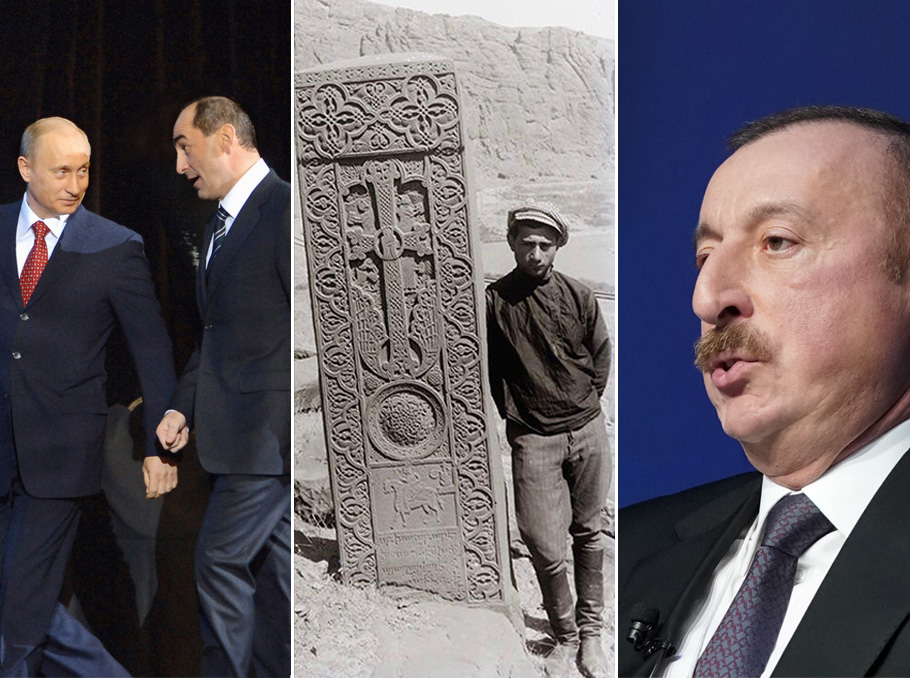

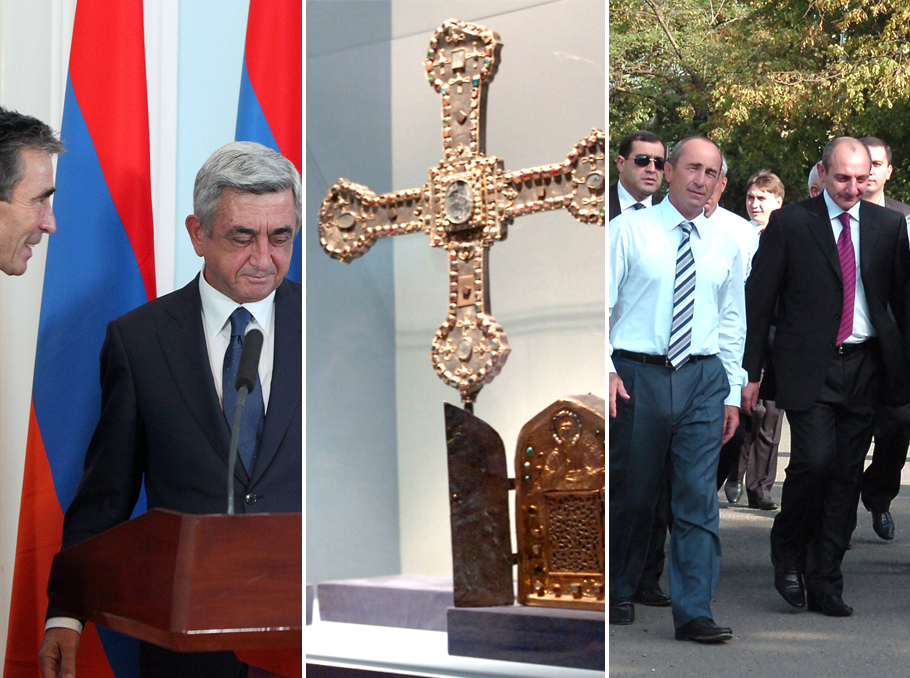
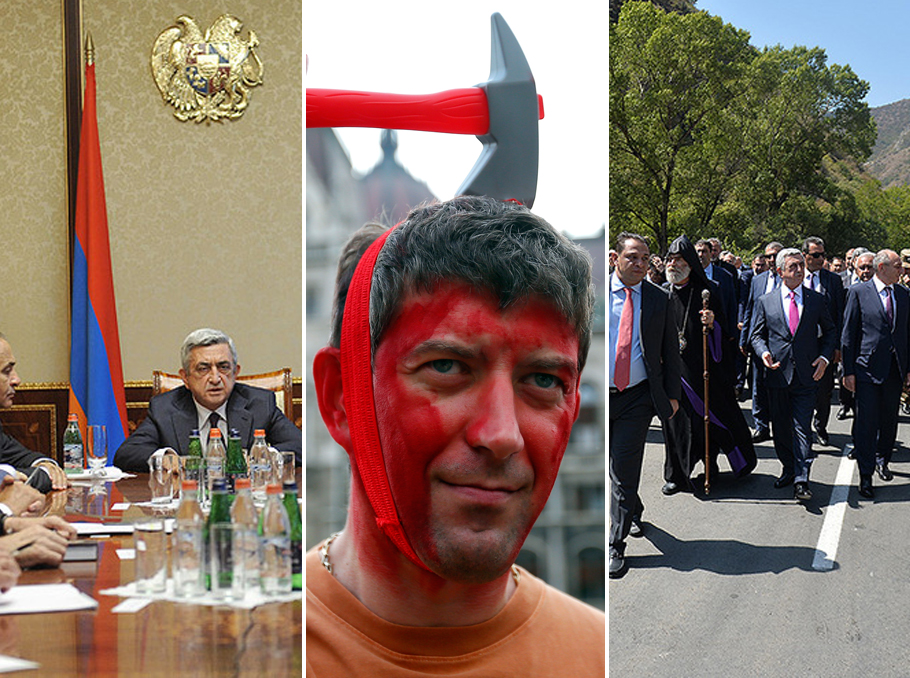
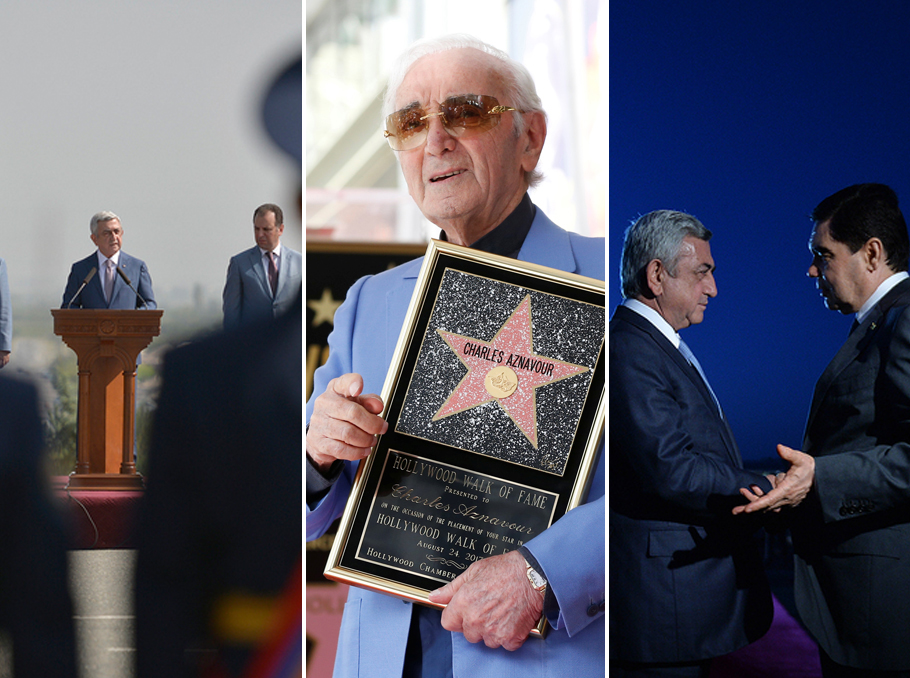
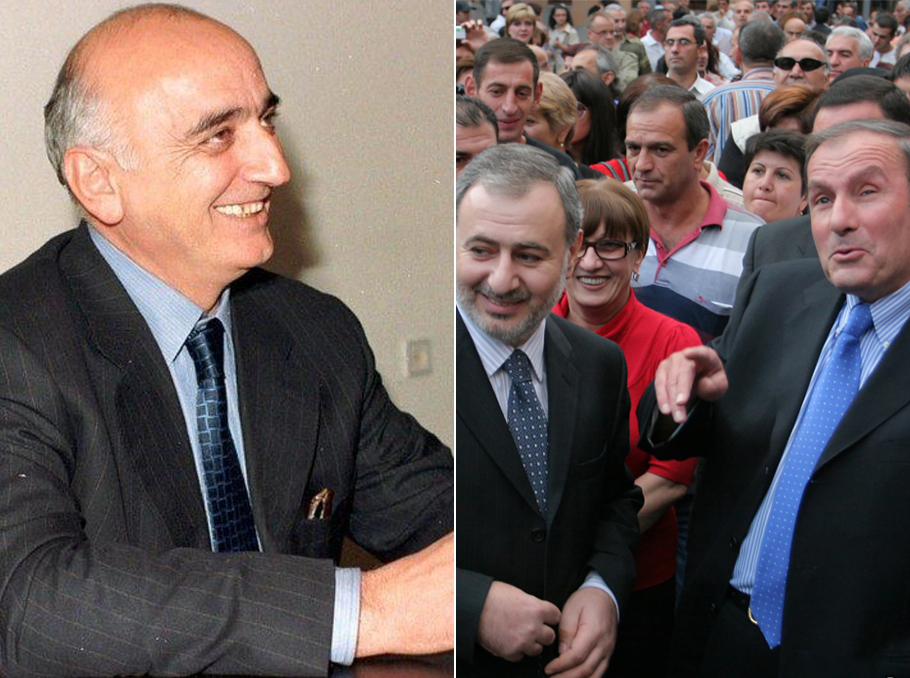
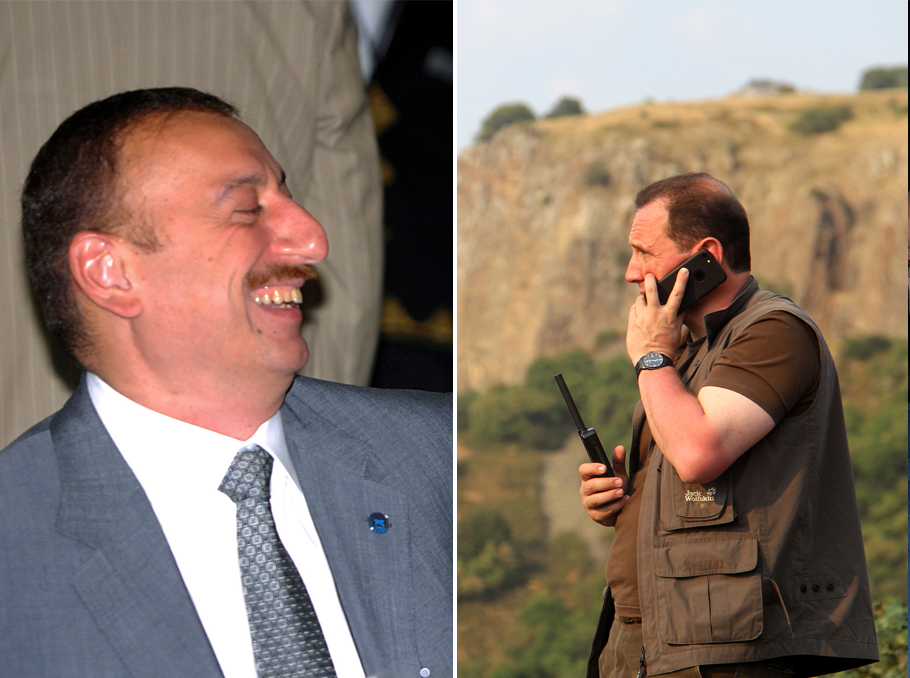






Comments
Dear visitors, You can place your opinion on the material using your Facebook account. Please, be polite and follow our simple rules: you are not allowed to make off - topic comments, place advertisements, use abusive and filthy language. The editorial staff reserves the right to moderate and delete comments in case of breach of the rules.